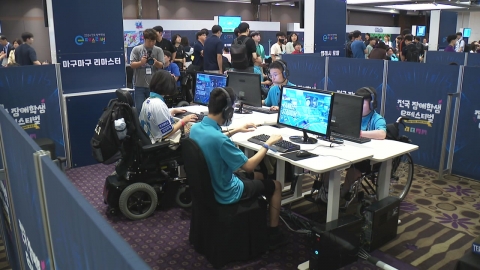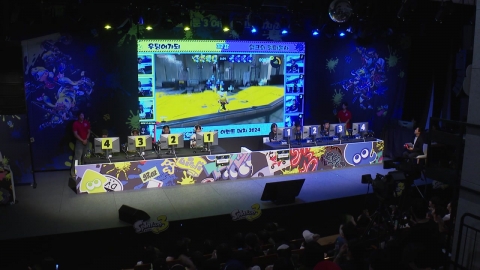■ Starring: Kim Yeol-soo, head of the Security Strategy Division of the Korea Institute for Military Affairs
* The text below may differ from the actual broadcast content, so please check the broadcast for more accurate information. Please specify [YTN New Square 8PM] when quoting.
[Anchor]
Negotiations on defense cost sharing between the U.S. and South Korea, which will take effect in 2026, were concluded today. We reached an agreement in five months. Learn more with our experts. Kim Yeol-soo, head of the Security Strategy Department of the Korea Military Research Institute, was present. Please come in. First, the contribution of defense costs. Please briefly explain what this is first.
[Kim Yeolsoo]
I mean, let's share that with the obligation. We are a host country. We invited them and the U.S. military is here. Then, why don't we share some parts of this? The defense cost sharing is. Therefore, it can be said that the defense cost sharing guarantees a stable condition for the U.S. Forces Korea and that we share for the security of Korea and peace on the Korean Peninsula. Before 1989, we didn't pay a single won for this. But it's actually an administrative agreement between South Korea and the United States under the treaty of mutual defense between South Korea and the United States. Something called a sofa. I'm talking about the Status of Forces Command Agreement. It's written in Article 5 like this. Our country guarantees the land, facilities, and right of passage for the USFK, and the USFK manages the facilities. But before 1989, we guaranteed land and the right of passage, but we didn't build any facilities. So in 1990, let's discuss this with each other and share it, so we signed the defense cost-sharing agreement for the first time in 1991. So this defense cost-sharing agreement was signed by Japan first, and then we signed the defense cost-sharing agreement in 1991, so it's already been 34 years now.
[Anchor]
That's right. I think many people are curious about why we should pay the contribution. Please explain briefly.
[Kim Yeolsoo]
The reason why we have to pay the contribution is that the U.S. Forces Korea guarantees stable conditions. Isn't there 28,000 U.S. troops in Korea? You have these U.S. troops in Korea, and you have a military wing with U.S. citizenship. So all the labor costs of those troops are covered by the U.S. budget. But for example, there are 28,500 U.S. troops in Korea and the workers we serve for their members. We are so-called Korean workers. There are 12,000 of them. We have to provide a certain salary for those 12,000 people and then make ammunition dumps or something. Also, I have to ruin BOQs. When you make it like that, you have to manage some of the expenses and military. Then let's split some money into these three areas. So at first, in 1991, it wasn't that long ago. But as the years go by, so-called, let's say that the ratio of the three areas I mentioned is 100%. At first, we didn't share even 10%, but the share ratio increased, so I'm not accurate now, but now we've increased the share to almost 80%. So this is what we do to ensure a stable presence of U.S. troops in Korea.
[Anchor]
It must be paid to ensure safety requirements. Let's also look at the agreement. The expiration date is from 2026 to 2030. The total amount of the first year came out. It is 1.519.2 trillion won, an 8.3% increase from the previous year. After that, the increase range will be determined in conjunction with consumer prices, and I'm curious about the manager's opinion on this part.
[Kim Yeolsoo]
It's a multi-year system. This case is from 2026 to 2030, so the application period is five years. Then the most important thing is how much will you share in the first year compared to before. This is the most important part. After that, as every year goes by, it's important to see how much you're going to raise. If it is our government's budget, if the government submits it to the National Assembly every year, it will be finally decided after deliberation by the National Assembly, but this is not something that can be done every year. Because it's a relationship between the state and the state. So we do this on a three-year basis or a five-year basis. Then, the most important thing is what percentage you give back and what percentage you give up. So if you look at this, the 11th SMA meeting we had in 2021 raised 13.9%. This is the 5th one that has been raised the most so far, but at this time, it was raised to 25.7% compared to the previous year.
[Anchor]
What year is that?
[Kim Yeolsoo]
It's the fifth year, so I'll have to look at the year. It's the 12th time we've settled this time. That increased 25.7% in the fifth year. However, the first year increase rate for these five years, which will be applied from 2026 to 2030, is 8.3%. So this 8.3% is much lower than the 13.9% in the 11th round. So, looking at that, I think that the defense cost sharing was decided in the first year at a reasonable level.
[Anchor]
From the perspective of the United States, we will try to increase the share as much as possible. Korea will try to match it reasonably, but when the agreement was concluded in 2021, the increase rate itself was linked to the increase in the Ministry of National Defense, but this time, it was linked to the increase in consumer prices. Of course, we set the upper limit by limiting it to 5%, but if we continue like this, there may be controversy over whether we should share more costs.
[Kim Yeolsoo]
Not necessarily. As I said, the first year is important. Then, it's important to base your impressions on every year. That standard has changed a lot during the 12th round. At first, let's raise it by 10% every year unconditionally, and then let's raise it every year by applying the consumer inflation rate plus the GDP fluctuation rate, and then let's apply the CPI from the seventh round. That's because the CPI is the consumer inflation rate. But consumer prices may exceed 5%. It could be 10%. Then you don't know how much to share. So after that, let's put a cap on the consumer inflation rate that we can never put up more. No matter how much it goes up, it can't go up more than 4%. As you've asked, instead of the CPI, which is called consumer inflation, in the 11th round of 2021, let's raise the defense cost contribution as much as the defense cost of the Ministry of National Defense goes up every year. We agreed. We agreed on it like that, but this time, we changed it again in the 12th round. So this is what you just said, put a cap on the consumer inflation rate. Even if it goes up as much as possible, it is conditional that it cannot exceed 5% every year. Let's take a look at this. What do you think is the approximate percentage increase in defense spending over the past five years? 4. It's 3%. But what we're expecting is that the consumer inflation rate will come at a few percent zero and then maybe about 1.78 or 2 percent by next year. If so, is it better to set a 4.3% increase in defense spending every year from the perspective of the Republic of Korea? Otherwise, would it be better to apply consumer inflation? Consumer inflation is better. And even in the worst case, it is not supposed to exceed 5%, so in my opinion, both the U.S. and Korea have reached a win-win agreement. I personally think so.
[Anchor]
You are evaluating that this negotiation was more reasonable. In fact, it took an unusual five months because the negotiation period was short. So there are many reasons coming out, and the U.S. presidential election is about to be held, and how do you analyze this part?
[Kim Yeolsoo]
In my view, we negotiated a lot overall, and basically the Democratic Party's perspective itself was very difficult when we reached the 11th SMA. So when President Trump asked me to raise it more than five times, I couldn't reach a three-year or five-year deal and made it a one-year deal. Then let's do it for a year. After that year, President Trump asked us to increase it to five times, so we kept turning it off. During the negotiations, he said, "I can't do it at all." That's why the negotiations were concluded as soon as President Biden entered the office. So what I'm saying is that the Democratic administration saw the scale and method of the various defense contributions that Korea is raising, the calculation method and the rate of increase as reasonable. That's why they settled it right away. So I think this time, we negotiated eight times in five months and reached a conclusion so quickly. You might think that it was because of President Trump that he negotiated quickly, but it can't be said that there was no such thing at all. Nevertheless, I think the negotiations were concluded so quickly because I think I am satisfied with the Korean negotiation strategy, the way the Democratic Party administration has negotiations, and the rate of increase in defense cost sharing.
[Anchor]
President Trump talked about his stance in the negotiations last time, but is there any room to invalidate this agreement and renegotiate it after President Trump is elected in the U.S. presidential election?
[Kim Yeolsoo]
Yes, it's burdensome, but it's not impossible at all. To give you an example of this, isn't there a free trade agreement signed between the United States and Korea? The Korea-U.S. FTA was signed during the Lee Myung Bak administration with President Obama in the past, and the Trump administration and the Moon Jae In administration signed a newly revised FTA after President Trump took office. Then what's settled now is settled during the Biden administration. Then, if the Trump administration comes in, it can demand that the Trump administration negotiate this again when the Trump administration is 2.0. Of course, there is a burden as a big country and it is not without a burden as a U.S. But I can't say that it's impossible.
[Anchor]
It's a burden. That's how they rated it. Looking at the other agreements, the US military abolished support for offshore asset maintenance. How do you rate this part?
[Kim Yeolsoo]
I came in for the first time during the 11th round. It's 2021. Then, the Republic of Korea accepted this in the 11th round of negotiations because they demanded that the maintenance of the US' offshore assets be included in the defense cost sharing. So that's what happened, but this time we talked about this. U.S. offshore assets have nothing to do with South Korea-U.S. defense charges. The assets of the U.S. Forces in Korea. This is possible as a defense cost contribution, but not offshore assets, so this time it is missing from here. But there's a reason why this is missing. When the 11th SMA was ratified by the National Assembly last time, the National Assembly's sub-opinion on the National Assembly's ratification of the 11th SMA should reflect this. Therefore, offshore assets should not be used as contributions for our defense expenses. So, the National Assembly suggested that the USFK is only possible, so make sure that this is carried out the next time we negotiate. So, during this negotiation, the Korean side talked to the United States. The United States has embraced this.
[Anchor]
I see. Let's stop here. In connection with the South Korea-U.S. defense cost-sharing negotiations, which will take effect in 2026, we discussed it with Kim Yeol-soo, head of the Korea Military Research Institute's Security Strategy. Thank you for talking today.
※ 'Your report becomes news'
[Kakao Talk] YTN Search and Add Channel
[Phone] 02-398-8585
[Mail] social@ytn. co. kr
[Copyright holder (c) YTN Unauthorized reproduction, redistribution and use of AI data prohibited]
Politics
View the full list of articles- Moon Jae In "North and South Korea are about to collide...A train that runs face to face".
- Han Dong-hoon meets for the first friendly dinner since taking office on the 6th.
- [News NIGHT] "Double Special Prosecutors Act" rejected the re-vote..."Lee Hwa-young's transcript." Wave.
- South Korea and the U.S. reach a defense agreement...8.3% increase in 2026






